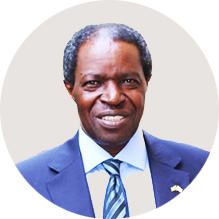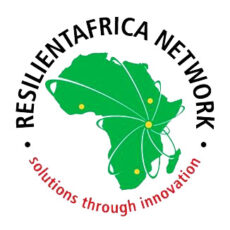UG | RAN
About RAN
Makerere University-ResilientAfrica Network (RAN) Who we are ResilientAfrica Network (RAN) is the largest network of African universities for advancement of resilience of communities to recurrent shocks and stresses by leveraging science and technology to innovate transformative solutions. RAN’s Theory of Change states: “The resilience of people and systems in Africa will be strengthened by leveraging knowledge, scholarship and creativity to incubate, test, and scale innovations that target capabilities and reduce vulnerabilities identified by an evidenced-based resilience framework”. A non-profit platform, RAN a multi-country project headquartered at Makerere University School of Public Health was established in 2012.

President
Prof. William Bazeyo
RAN brings together 20 universities across 13 countries in Africa as well as two US-based universities: George Washington University which supports RAN on resilience framework development and operationalization while Stanford University provides support in innovation process development. Functionally, RAN universities are clustered around four regional Resilience Innovation Labs (RILabs), our centres for sourcing, incubating and scaling innovations. The Eastern Africa RILab is led by Makerere, Southern Africa RILab by the University of Pretoria, West Africa RILab by the University for Development Studies, Ghana and the Horn of Africa RILab by Jimma University, Ethiopia. To-date, RAN has supported and is incubating over 330 Innovative Solutions (95 funded and 235 non-funded but benefiting from RAN’s capacity building arm) in the fields of Renewable Energy, Water and Sanitation, Agriculture, Food Security, Global Health, Education, Financial Inclusion, Gender, Social Change, Arts and Humanities among others.
Objectives
Objectives are to:
- Design and operationalize a scientific, data-driven and evidence-based resilience framework for Sub-Saharan Africa that builds on the resources already engaged through the RAN.
- Strengthen resilience at the individual, household and community levels through innovative technologies and approaches to development, which will be identified, incubated, tested and scaled through the RAN, in collaboration with its partners.
- Enhance resilience-related knowledge and share it globally, engaging students, faculty, staff, and development experts from around the world to collaborate on solving resilience related problems.
Development and humanitarian aid have been historically addressed on a project-by-project basis within different sectors including health, education, and agriculture among others. Although these efforts have saved lives and met immediate program objectives, they have not increased the capacity of affected populations to withstand future shocks and stresses.
RAN will hence adopt a resilience based approach to programming that provides a framework for analyzing resilience and enables people to discover how to be more resilient to shocks and stresses.
To achieve this, RAN will engage a wide network of students and faculty members in improving well-being though generating local innovative solutions to specific development challenges in African communities.
RAN Universities
Eastern Africa Resilience Innovation Lab, Uganda
- Makerere University
- Gulu University
- National University of Rwanda
- University of Kinshasa
- Muhimbili University of Health and Allied Sciences
- University of Nairobi
- Makerere University Business School-(MUBS)
- Mbarara University
Horn of Africa Resilience Innovation Lab, Ethiopia
- Jimma University, Ethiopia
- Addis Ababa University
- Bule-Hora University
- Benadir University
Southern Africa Resilience Innovation Lab, South Africa
- University of Pretoria, South Africa
- Lilongwe University of Agriculture and Natural Resources (LUANAR)
- University of Limpopo
- Sefako Makgatho Health Sciences University
- Zimbabwe Ezekiel Guti University
West Africa Resilience Innovation Lab, Ghana
- University for Development Studies
- University of Ghana
- Cheikh Anta Diop (UCAD) University, Senegal
- University of Bamako
USA Based Partners
- Stanford University
- George Washington University
- Center for Strategic and International Studies
RAN Countries
- Uganda
- Rwanda
- DRC
- Tanzania
- Somalia
- South Africa
- Zimbabwe
- Malawi
- Ethiopia
- Kenya
- Ghana
- Senegal
- Mali


